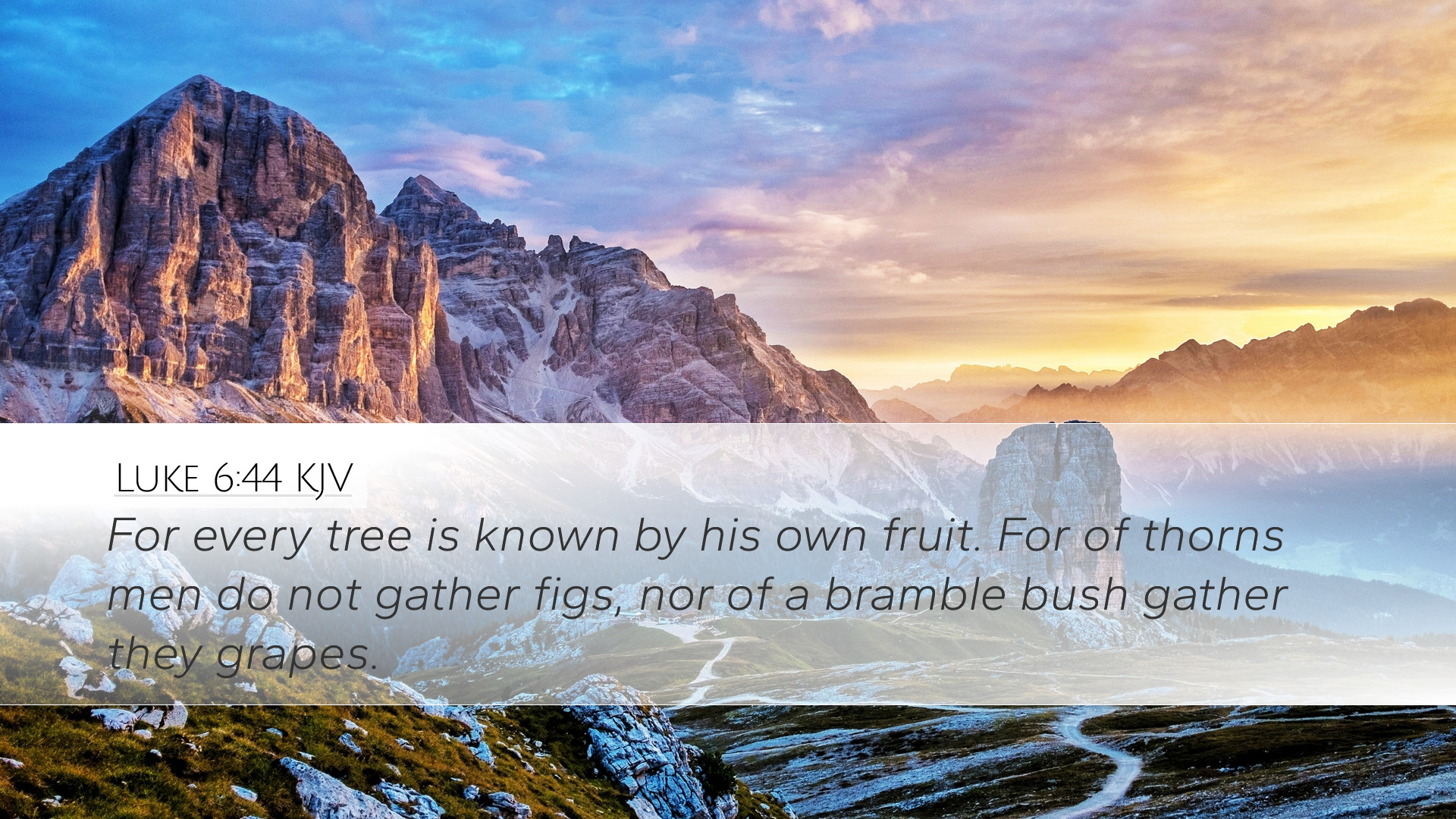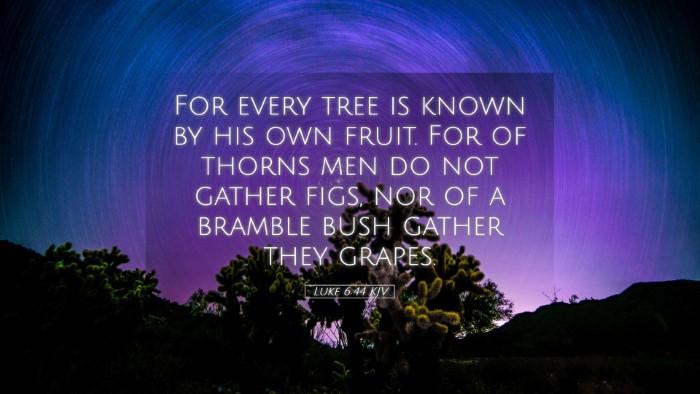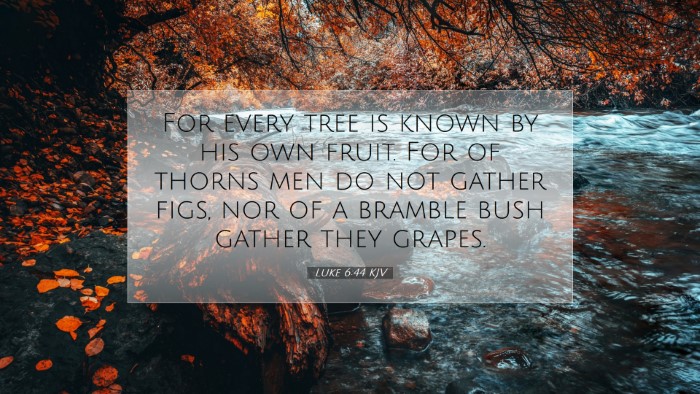Commentary on Luke 6:44
Luke 6:44 states: "For each tree is known by its own fruit. For men do not gather figs from thorns, nor do they gather grapes from a bramble bush." This verse encapsulates Jesus' teaching about the intrinsic relationship between identity and output, emphasizing the nature of true moral character revealed through actions.
Contextual Background
In this passage, Jesus addresses the multitude and His disciples, teaching them the principles of genuine righteousness versus falsehood. This teaching is set against the backdrop of the Sermon on the Mount, where He contrasts the behavior of His followers with the religious leaders of the time.
Theological Insights
- Nature of the Tree and Fruit: As Matthew Henry notes, the tree is representative of the heart and character of an individual. Just as a good tree produces good fruit, a well-grounded believer will exhibit virtues that reflect their faith.
- Identity and Evidence: Albert Barnes emphasizes that one’s character will reveal itself through actions. He states that a person’s true nature is exhibited in the works they produce, echoing the notion that inward transformation must manifest outwardly.
- The Exclusivity of Fruit-Bearing: Adam Clarke highlights the impossibility of thorns producing figs and brambles producing grapes. This metaphor serves to illustrate a natural law within spiritual realms: a corrupt tree (or heart) cannot produce good works, reinforcing the importance of being rooted in Christ.
Practical Applications
This verse directs the attention of pastors, theologians, and scholars to the following practical considerations:
- Self-Examination: Individuals are called to reflect on their lives, assessing the fruit being produced. Are their actions consistent with the teachings of Christ?
- Ministry Reflection: In pastoral ministry, this verse challenges leaders to examine whether their congregation is producing good fruit—love, joy, peace—and how they might cultivate this in their teaching and activities.
- Discipleship Approach: Understanding the nature of trees and fruit can inform discipleship strategies, focusing on root issues of sin and righteousness rather than mere behavioral modification.
Character Reflected in Actions
True character can only be understood through the lens of one’s actions. Luke 6:44 serves as a reminder that external behavior functions as a direct extension of internal beliefs. Pastors and spiritual leaders are encouraged to foster environments where authenticity can flourish, allowing for the gradual transformation that good fruit naturally entails.
Exemplifications from Scripture
Throughout Scripture, various passages exemplify this principle:
- James 3:12: “Can a fig tree, my brethren, bear olives, or a grapevine bear figs?” This reiterates the idea of consistency between what is inside and what is produced.
- Matthew 7:16-20: “You will recognize them by their fruits.” This serves as both a caution for how believers assess others and also as a call for personal integrity.
Conclusion
The verse Luke 6:44 inspires critical thought among pastors, theologians, and students, encouraging them to deeply explore the relationship between their identity in Christ and the fruit of their lives. The intertwining of belief and behavior must be cultivated within personal and communal expressions of faith.


